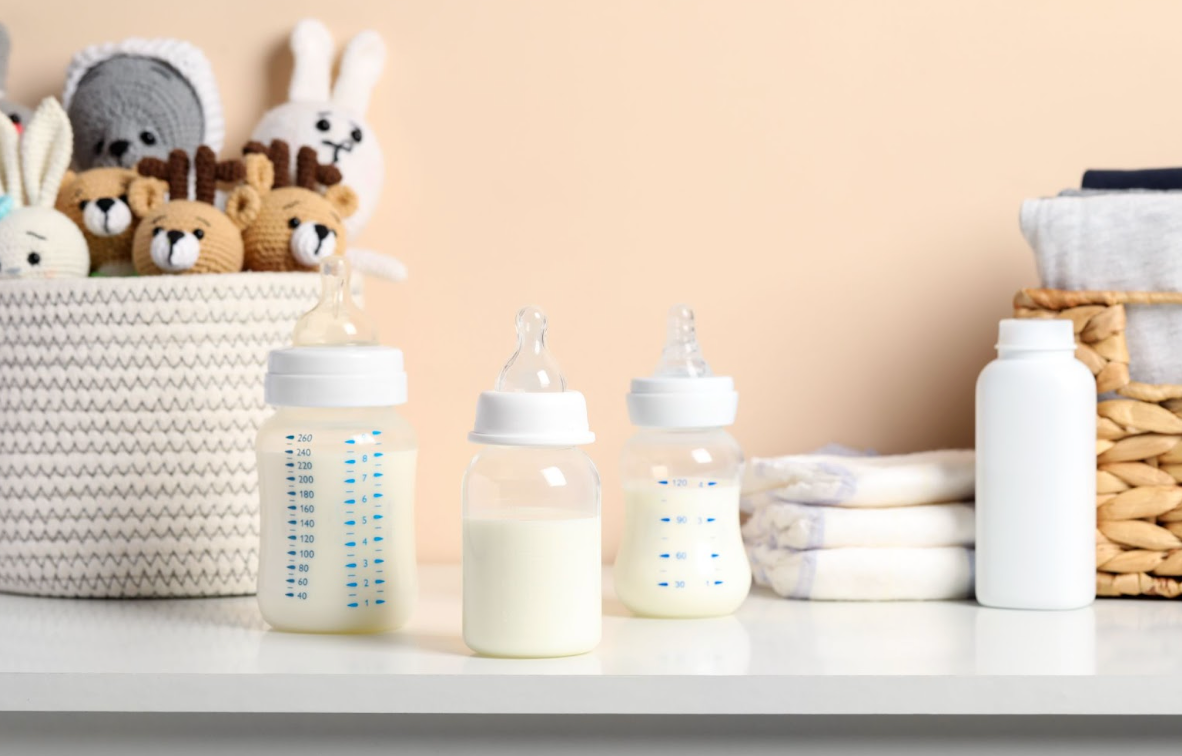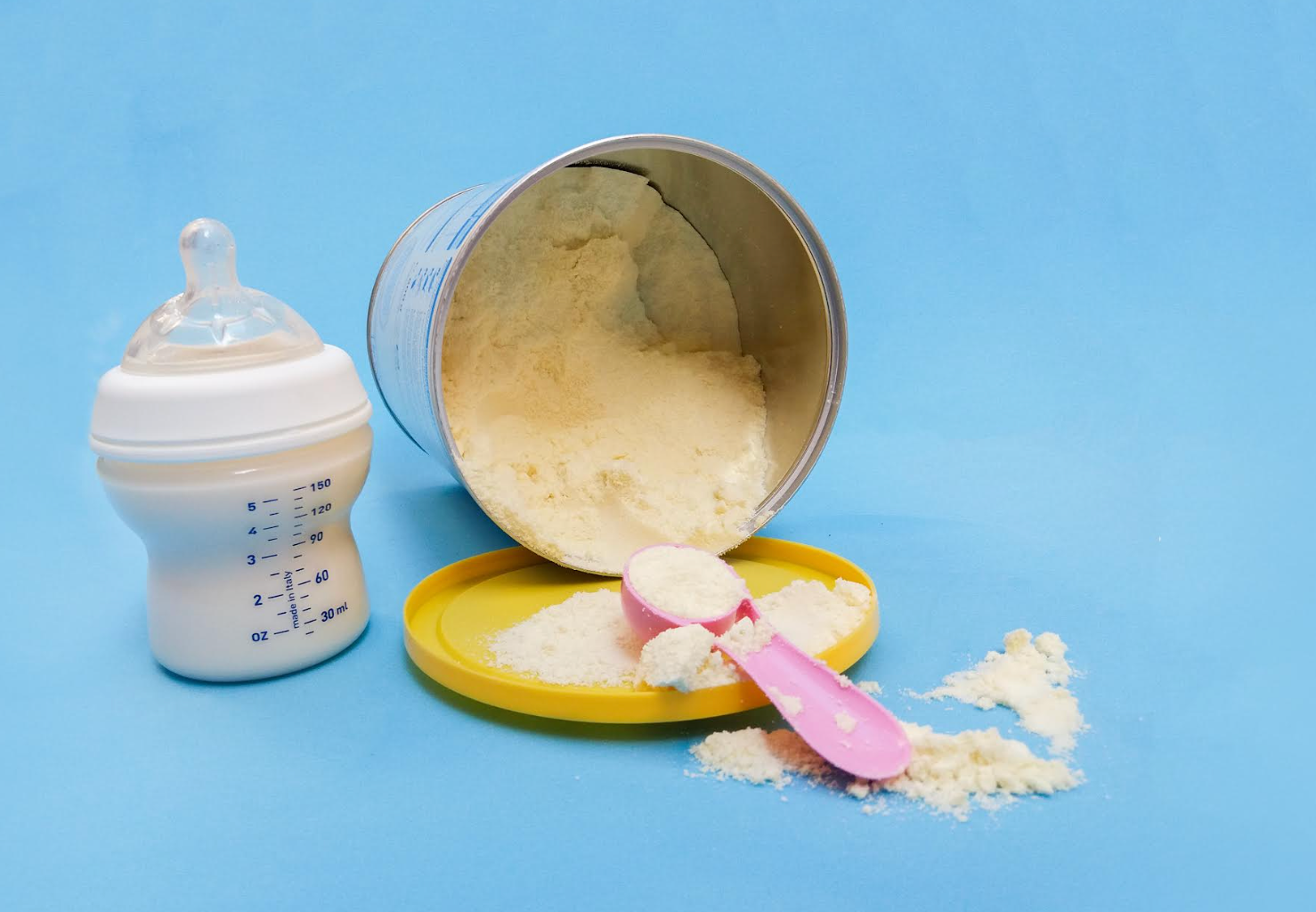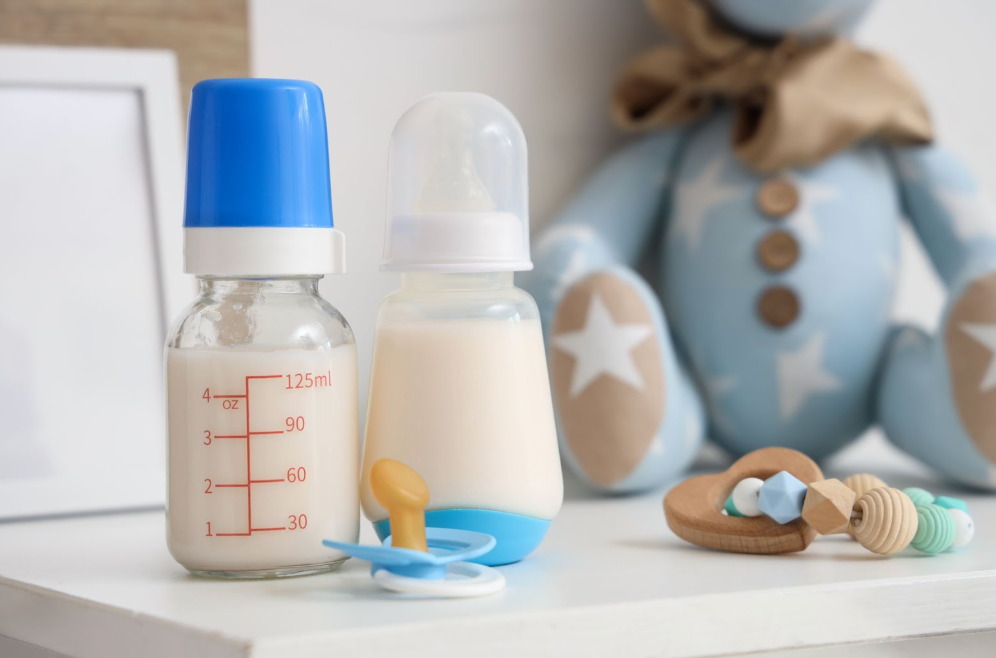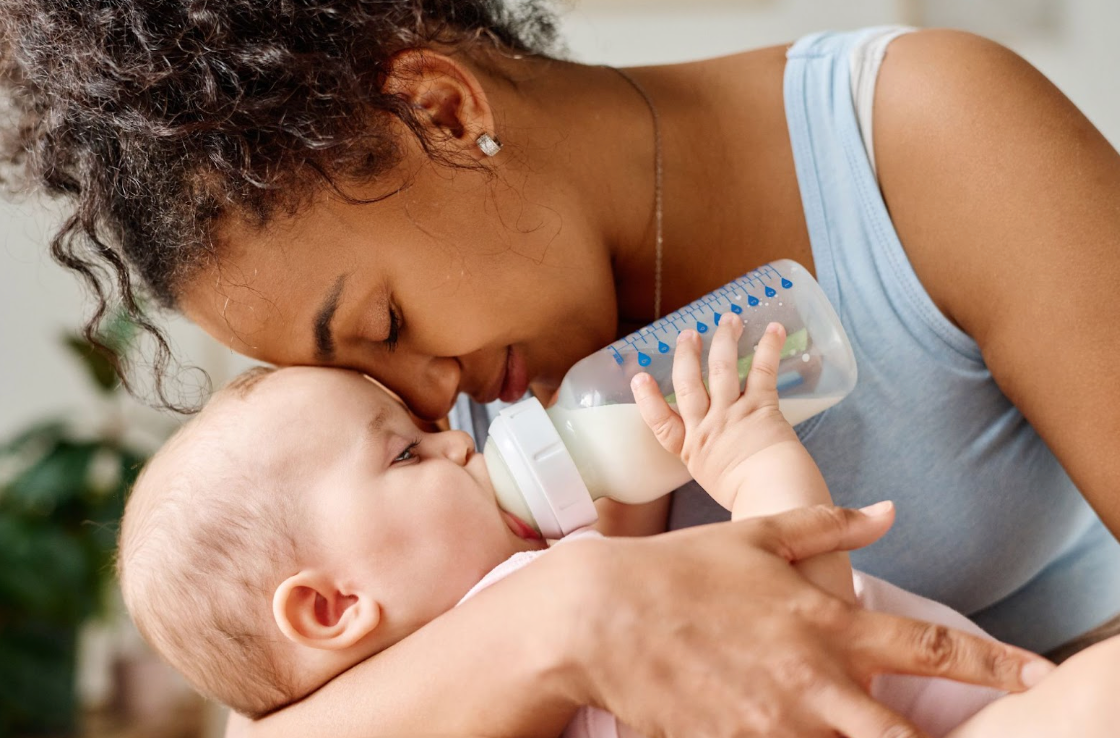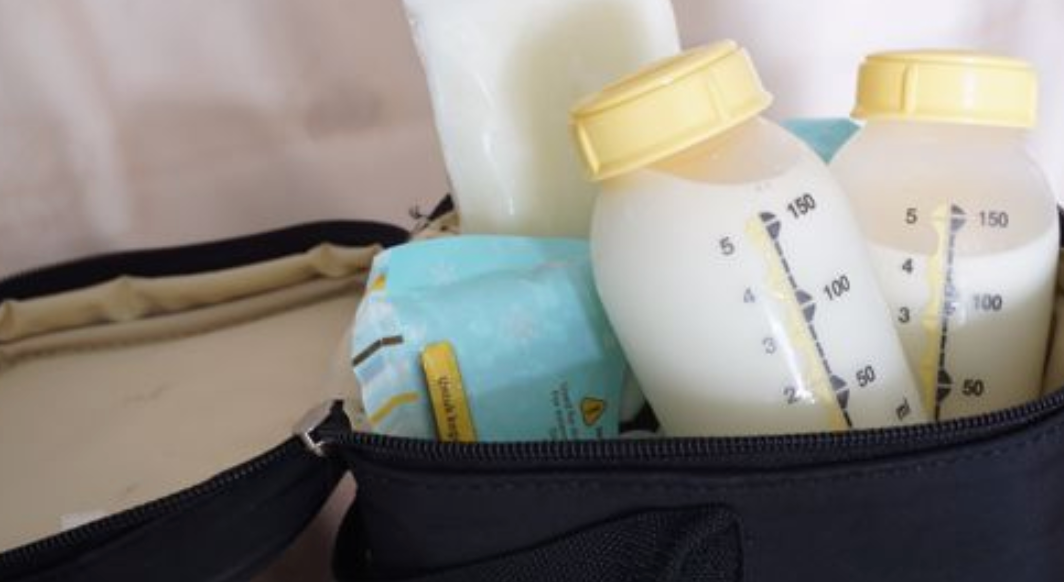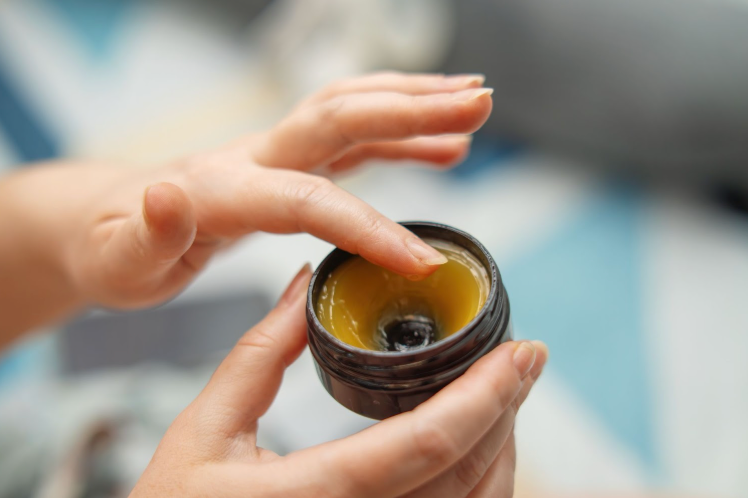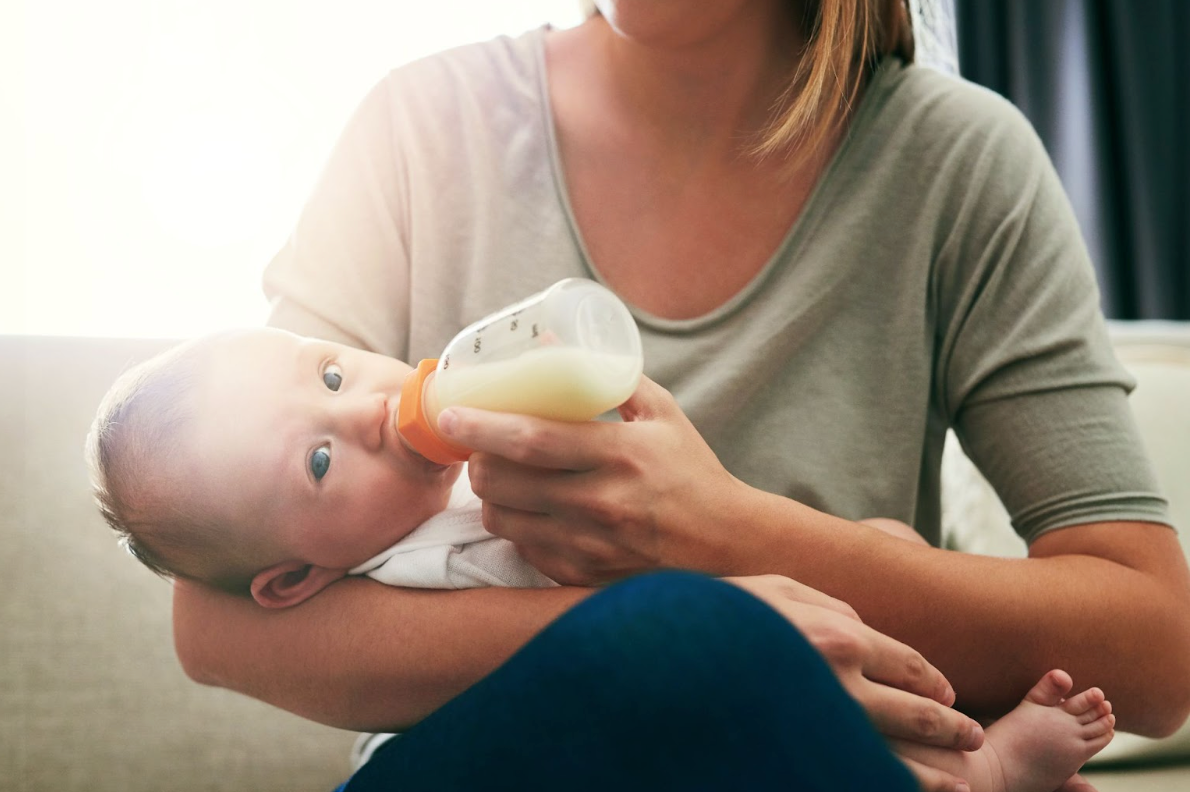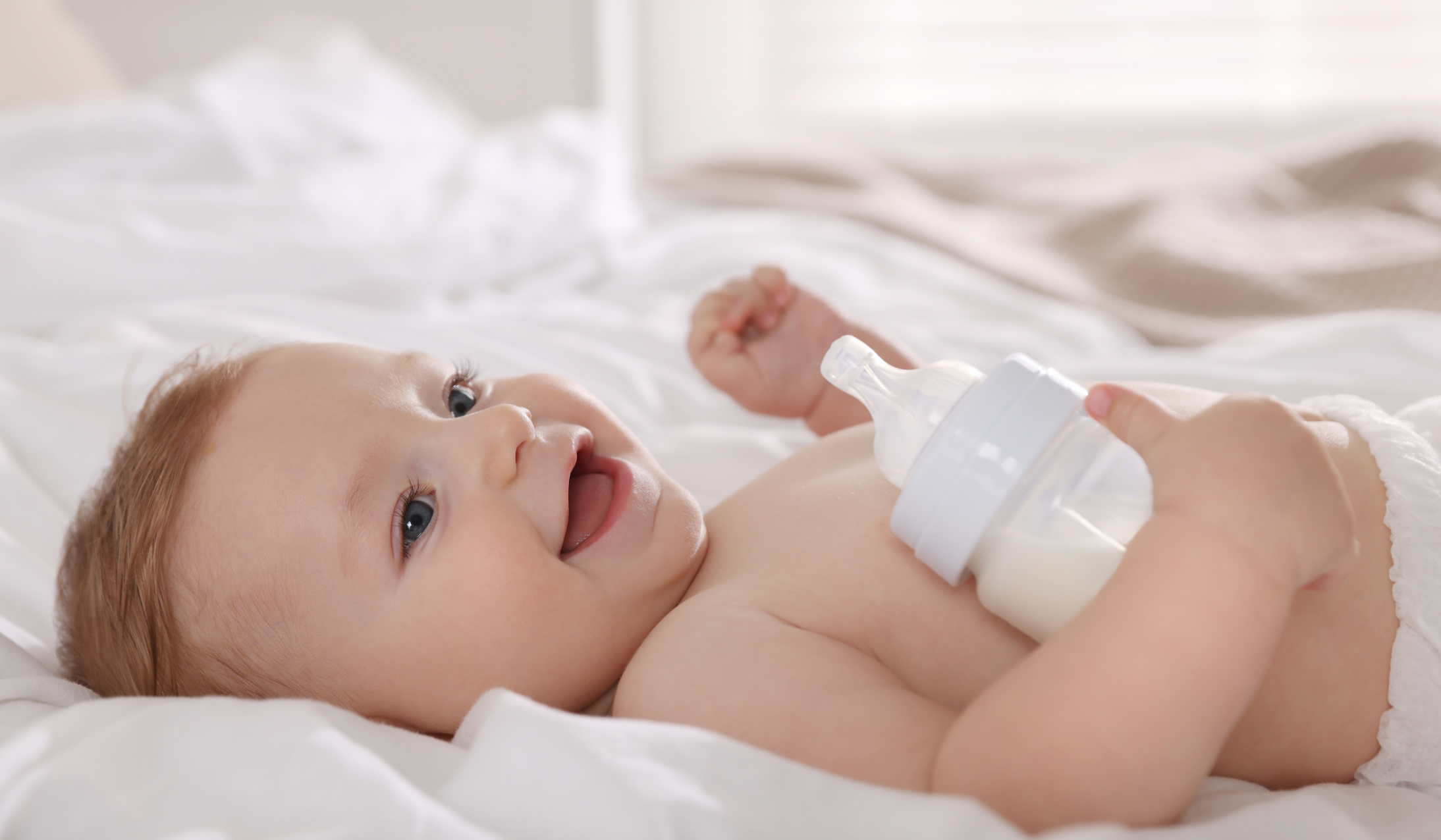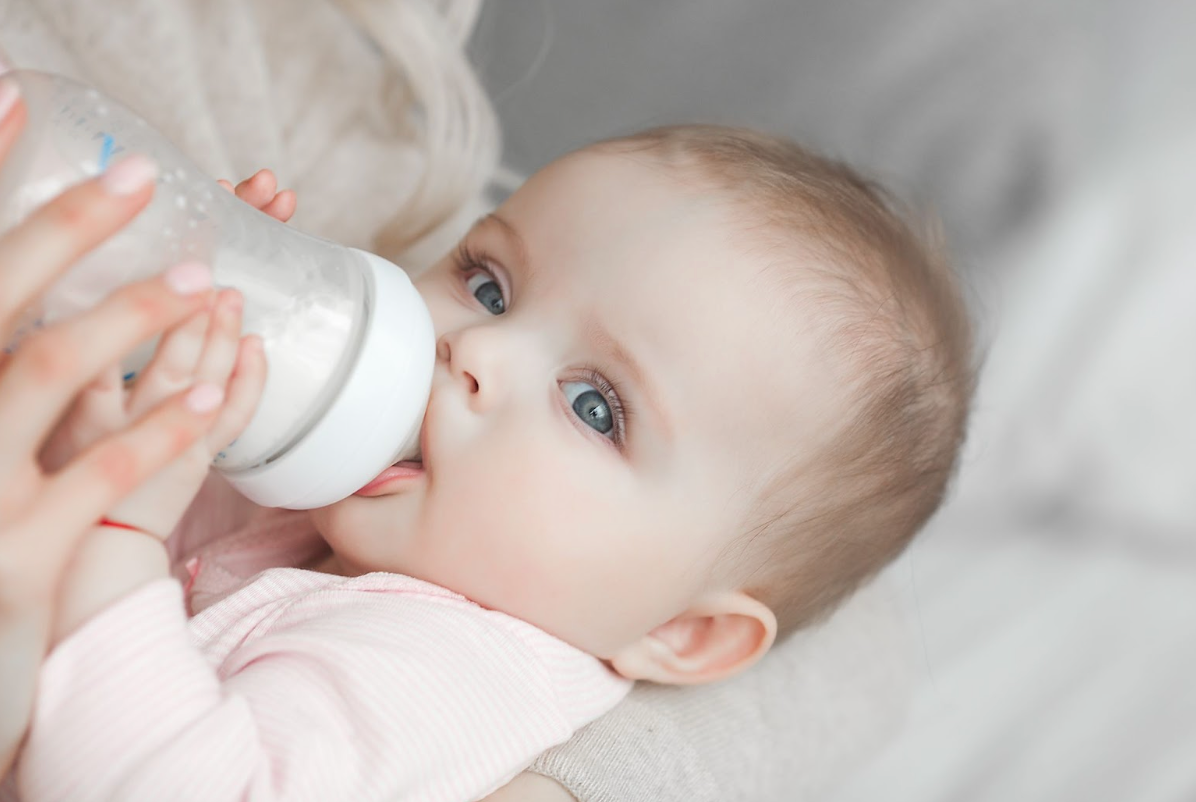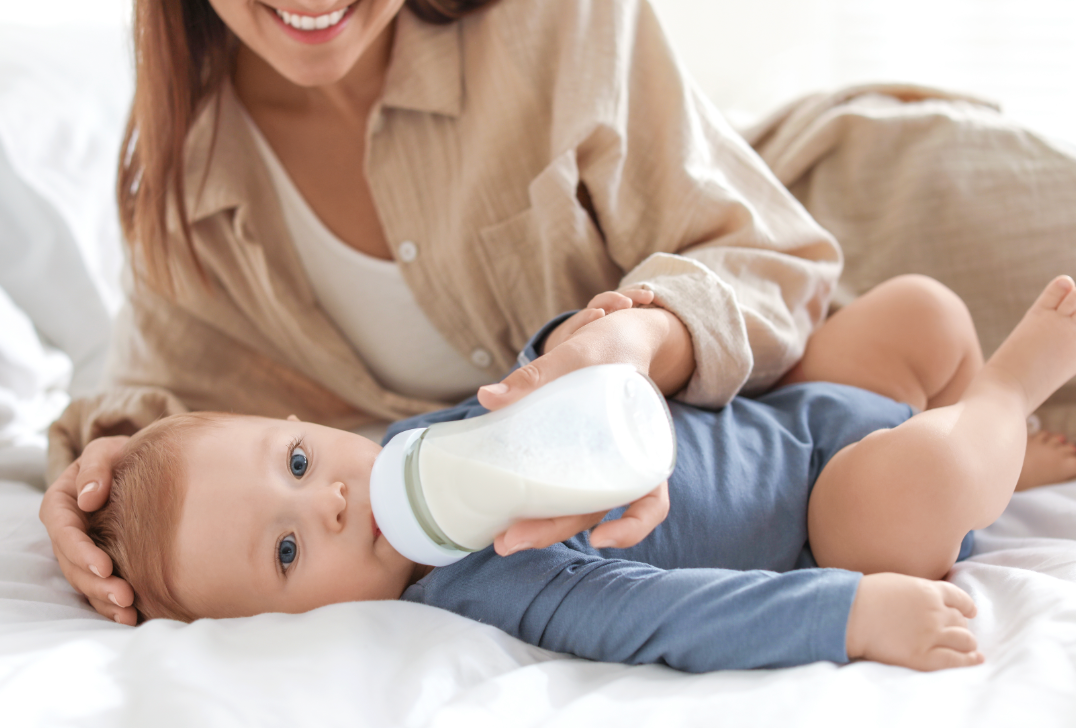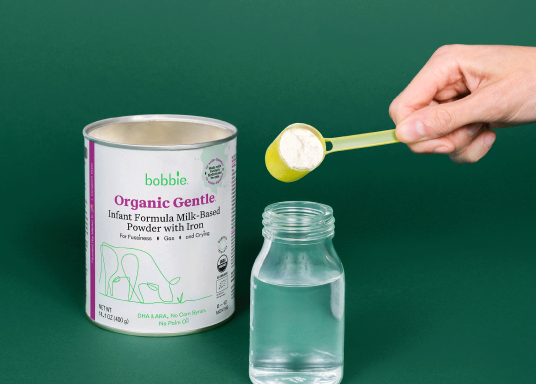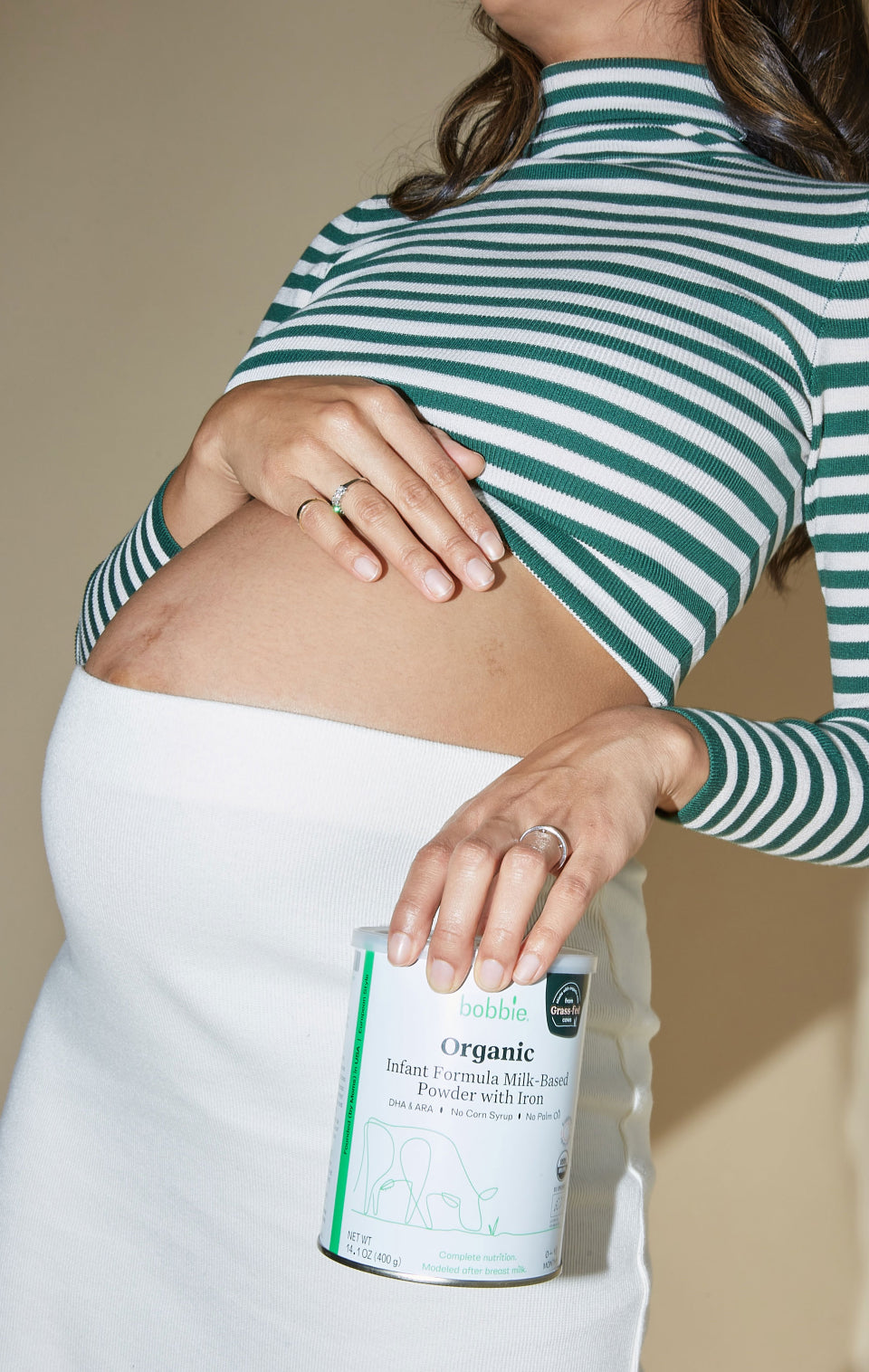Published February 23, 2024

Choosing the Right Water for Baby Formula: Distilled vs. Purified Options
When preparing infant powdered formula, one of the most important considerations is water! Parents often ask, "What water should I use for my baby’s formula?" The health and safety of your baby is priority, and choosing the best water for baby formula is a crucial step in ensuring their wellbeing. This article will explore the considerations and recommendations surrounding this topic, including the use of distilled or purified water for baby formula.
Understanding the Options: Distilled, Purified, or Spring Water
The debate between using distilled or purified water for baby formula is common among new parents. Distilled water undergoes a process that removes impurities and minerals, making it a safe option for baby formula. It's often recommended due to its purity and lack of contaminants. However, some parents wonder, "Can I use distilled water for baby formula?" Yes! Distilled water is safe for use in baby formula, but it’s important to understand its properties.
Distilled water, while free from impurities, also lacks minerals. This is perfectly fine as infant formula is nutritionally complete, supplying the minerals infants need for appropriate development from birth through age one. Purified water, which includes processes like reverse osmosis, deionization, or carbon filtration, removes harmful contaminants but retains some essential minerals. Choosing between distilled water and purified water often comes down to a matter of preference and the specific needs of the baby.
On the other hand, spring water is not routinely recommended to be used to mix infant formula as it contains naturally occurring minerals at higher levels. While spring water can be used occasionally to prepare powdered infant formula, it is not recommended for daily use.
The Risk of Dental Fluorosis
A significant concern when selecting water for baby formula is the risk of dental fluorosis. This condition, caused by excessive fluoride during tooth development, leads to changes in the appearance of tooth enamel. In the United States, many local water supplies contain fluoride, which helps prevent tooth decay. However, for infants, particularly those under six months of age, excessive fluoride can be a concern. Therefore, parents are advised to use fluoride-containing bottled water, often called “nursery water,” cautiously when mixing powdered formula. It's important to check the fluoride content of local water sources and consider using low-fluoride or fluoride-free water options like certain distilled or purified waters, particularly during the first six months of life.
Preparing Infant Formula: Safety First
Whether using distilled water for baby formula or any other type of water, it should be free from contaminants and safe for consumption. For parents in areas where the local water quality is questionable, boiling the water for a one-minute rolling boil and then cooling it for at least five minutes (no more than 24 hours) is recommended. This ensures that any potential bacteria or harmful agents are eliminated.
Meet the first and only USDA organic infant formula manufactured in the U.S.! Bobbie Organic Whole Milk Formula offers complete nutrition for baby's first year with our closest to breastmilk recipe.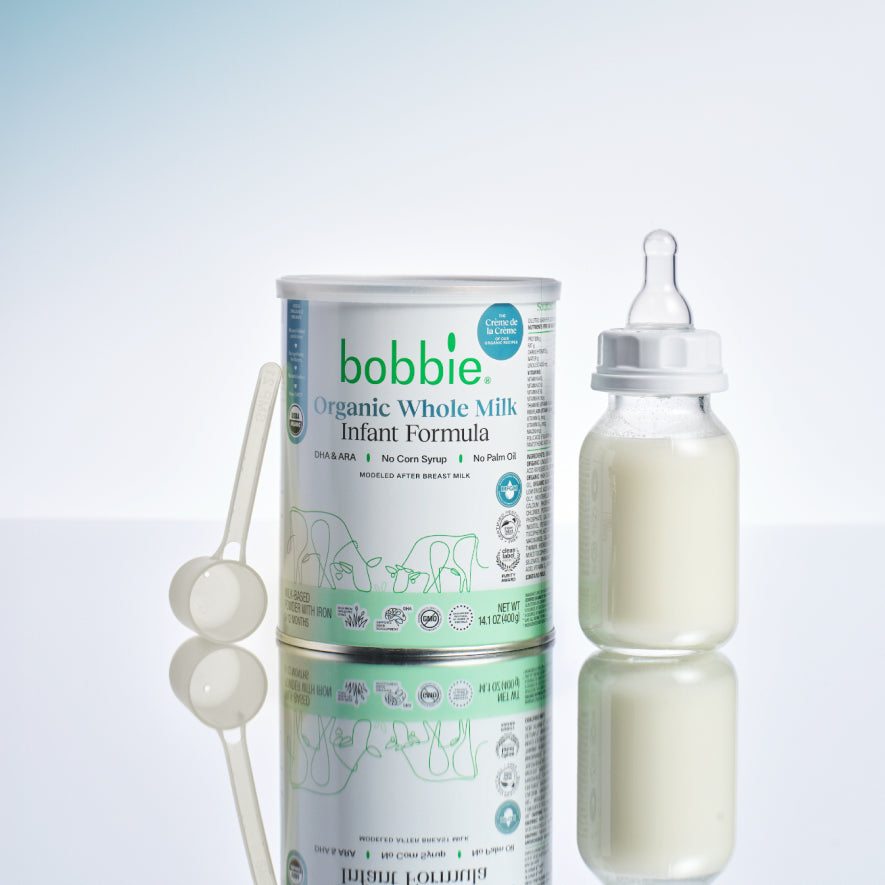
Shop Organic Whole Milk Infant Formula

Special Considerations for Babies Born Prematurely
Babies born prematurely or with compromised immune systems require extra care. For these infants, the American Academy of Pediatrics recommends using water that's been sterilized or boiled and cooled to mix formula. This precaution helps protect vulnerable babies from potential water-borne illnesses that their developing immune systems might not be able to handle.
Sign up to get the scoop on feeding, sleep, poop, and so much more. By singing up for email, you are to receive marketing emails from Bobbie and can manage your email preferences or unsubscribe at anytime

Your go-to resource for all things new baby.
The Role of Breast Milk and Water
It's worth noting that breast milk naturally contains the right balance of nutrients and water for most infants. If using formula or combo-feeding, it’s still important to ensure the water is safe, as it acts not just as a diluent but also as a carrier for the nutrients in the powdered formula.
Convenience and Practicality
Some parents opt for pre-packaged, distilled water specifically marketed for baby formula. These products offer peace of mind, knowing the water is safe and appropriately treated for infant consumption. However, they can be more expensive than simply using tap water that's been boiled and cooled.
Final Thoughts
Choosing the best water for baby formula is a decision that depends on several factors, including the quality of local water, the baby’s health, and your infant’s specific needs. Whether parents choose distilled or purified water for baby formula, the key is ensuring that the water is safe and free from harmful bacteria or contaminants. By understanding the nuances of different water types and the specific needs of their baby, parents can make an informed decision that supports the healthy development of their child.
Bobbie infant formulas are clean, EU-style infant formulas that meets all FDA requirements. They are complete nutrition, milk-based powder, modeled after breast milk and is easy on tummies. They are all non-GMO and do not have corn syrup, palm oil, or maltodextrin. Shop Bobbie today!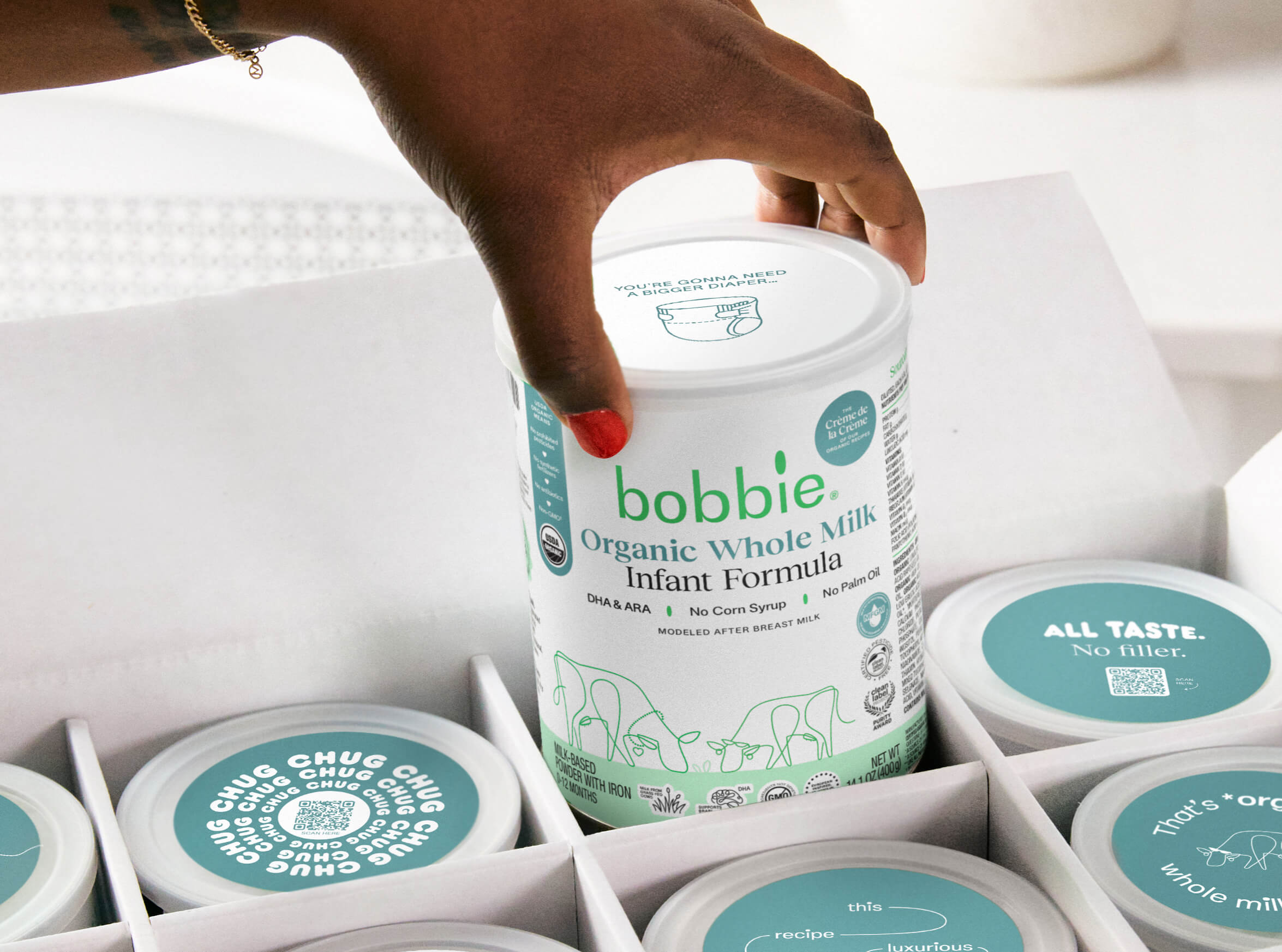
Shop Bobbie Baby Formula

The content on this site is for informational purposes only and not intended to be a substitute for professional medical advice, diagnosis or treatment. Discuss any health or feeding concerns with your infant’s pediatrician. Never disregard professional medical advice or delay it based on the content on this page.










